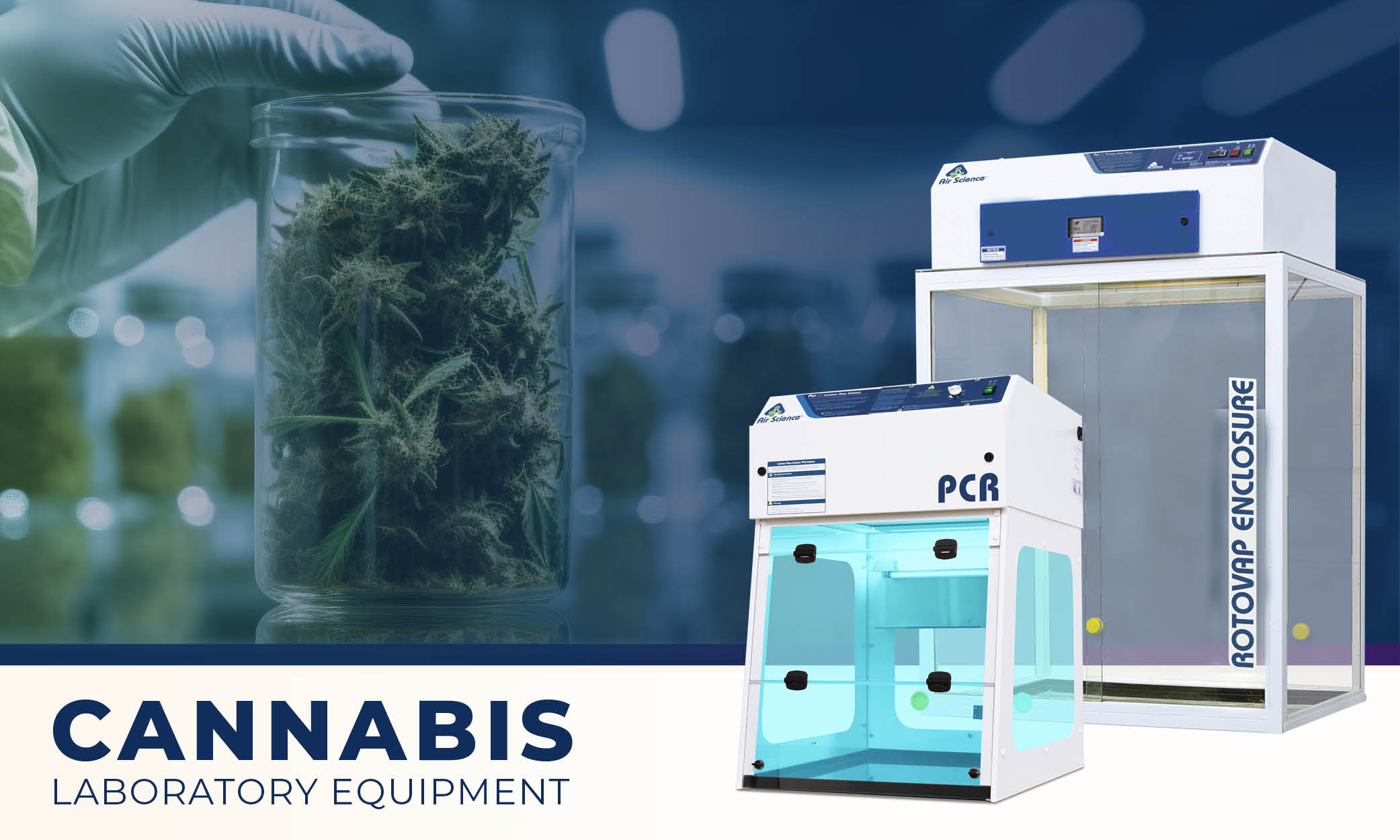
As cannabis production grows and regulatory standards increase, quality control and consistency become more important. For many cannabis labs, this means implementing standard laboratory processes and equipment.
While there are numerous types of laboratory equipment, two pieces of standard laboratory equipment are essential for those in the botanical products industry.
Ductless or Ducted Fume Hood
Certain sterilization techniques used in the botanicals industry rely on various chemicals to sterilize, leach, and extract active ingredients from the plants. These processes can lead to personnel exposures that exceed defined safe exposure limits. Proper personal protective equipment, as well as purpose-designed safety barriers and equipment, are necessary to ensure the safety of all personnel involved in the handling of raw materials and finished botanical products.
Ductless and ducted fume hoods are designed to protect the operator and the environment from potentially hazardous vapors emitted on the work surface. Traditional ducted fume hoods are connected to existing facility ductwork and pull contaminated air through the hood and direct it outside the facility and into the atmosphere. Ducted fume hoods can be filtered or unfiltered depending on the design and application.
Ductless fume hoods contain filters that clean contaminated air and recirculate it directly back into the laboratory. No additional ductwork is required to exhaust air to the outside. Ductless fume hoods provide the same filtration capabilities as ducted hoods but are easier to install, have lower initial installation costs, can easily be moved or relocated in the laboratory and can be highly efficient.
Purair PCR Laminar Flow Cabinets
Cannabis laboratories that work with gene cloning typically use PCR (Polymerase Chain Reaction) machines for amplification of DNA segments. Minimizing contaminants is critical when it comes to ensuring reliable results in PCR amplification.
PCR contamination can be caused by a variety of sources, including airborne particulates, inadequate surface decontamination and preparation, and improperly handled samples. Airborne particulates can originate from people, animals, or other sources in the laboratory environment. In addition to these external sources of contamination, trace amounts of DNA introduced from the ambient environment can result in the amplification of foreign material, distorting the results.
Air Science Purair PCR workstation enclosures provide a safe, energy-efficient, contamination-free environment during PCR amplification. The Purair PCR workstation is designed to provide flexible access to the thermocycler while protecting against cross-contamination. The unvented unit uses Air Science Multiplex™ HEPA filtration technology which consists of a pre-filter, main filter and HEPA safety filter. It is ideally suited for use with non-hazardous contaminants and when flexible access to instrumentation in the cabinet is required.
In addition to ductless and ducted fume hoods and PCR laminar flow hoods, the Air Science the Purair BIO and the Purair FLEX can also support botanical and cannabis manufacturers. Download our Guide to Cannabis and Botanical Product Processing ebook to learn more.